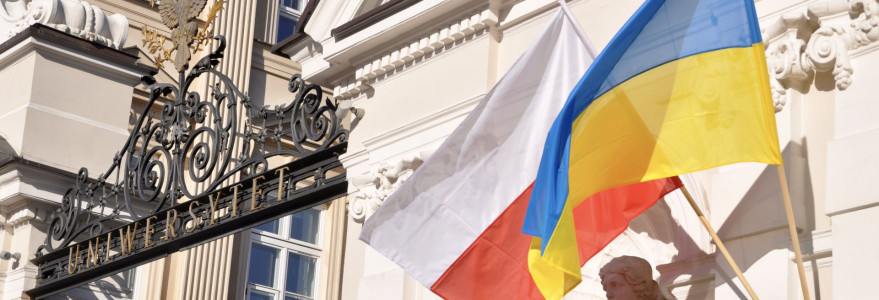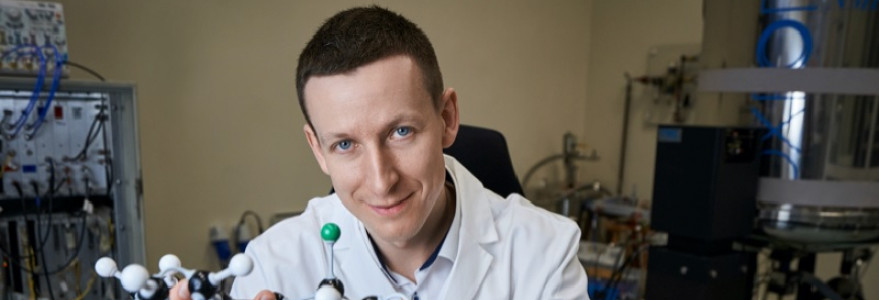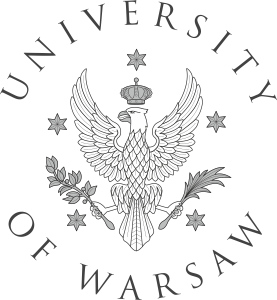Information for students and doctoral candidates from Ukraine
01 marca 2022Інформація для студентів і аспірантів з України
Solidarity with Ukraine
24 lutego 2022
On 23rd February, the Senate of the UW adopted a resolution on expressing our solidarity with Ukraine and Ukrainian citizens.
Resolution No. 121 of the Senate of the University of Warsaw of 23 February 2022 on expressing our solidarity with Ukraine and Ukrainian citizens
The Senate of the University of Warsaw expresses solidarity with Ukraine and their struggle against the overt aggression. Facing the Russian invasion on the Ukrainian territory, the Senate of the University of Warsaw expresses our solidarity with Ukrainian citizens, especially the Ukrainian students and colleagues who are part of the community of the University of Warsaw.
Many a time, the Polish history has proved how threatening imperialism can be. The Senate of the University of Warsaw expresses their sincere hope that the future will bring peace as soon as possible for Ukraine and the world.
Source: www.en.uw.edu.pl
An announcement for Post-doctoral fellowship position
21 lutego 2022Position of post-doctoral (a group of science positions) in the OPUS 20+LAP project entitled „Multifunctional electrocatalysts for clean energy conversion” financed by NCN is open for application. Project leader: prof. dr hab. Paweł Kulesza. Deadline for applications: 23 March 2022. For more info see >> pdf
An education mode in the summer semester 2021/2022
16 lutego 2022
Dear UW Community,
as the winter holidays are coming to an end, I would like to officially declare that an onsite mode of teaching is the major form of courses at the University of Warsaw. Only selected classes can be conducted in a remote mode. Thus, principles of the education mode remain the same compared to the winter semester.
I would like to emphasize that the safety of our academic community as well as the highest possible level of education are the priorities of the University of Warsaw authorities.
With kind regards,
UW Rector
Source: www.en.uw.edu.pl
Mirror images
15 lutego 2022
“Most of the biological molecules forming the human body are chiral, which means that they differ from their mirror images, much like hands. Therefore, my ERC Starting Grant aims to investigate a new branch of nuclear spectroscopy (NMER) that is based on chirality-sensitive magnetoelectric effects. Such effects are due to interactions involving nuclear magnetic moments, magnetic and electric fields,” Professor Piotr Garbacz said.
Piotr Garbacz, Assist. Prof., from the UW Faculty of Chemistry, has won a prestigious European Research Council (ERC) Starting Grant. He has been the fourth ERC Grant laureate from the University of Warsaw this year and the first Grant winner from the Faculty of Chemistry, University of Warsaw.
In his project, Prof. Garbacz proposes a new branch of molecular spectroscopy, named nuclear magnetoelectric resonance spectroscopy, or NMER spectroscopy. Prof. Piotr Garbacz, the UW Faculty of Chemistry, makes it clear that “this project lifts the blindness of nuclear magnetic resonance (NMR) spectroscopy to molecular chirality. First, we will observe chirality-sensitive magnetoelectric effects. Based on these effects, a new branch of molecular spectroscopy, abbreviated as NMER, is proposed, which will enable us to identify enantiomers directly without requiring chemical shift reagents or chiral solvents.”
Prof. Piotr Garbacz has won European Research Council (ERC) Starting Grant for his project: “Chirality-sensitive Nuclear Magneto-Electric Resonance.” Alike “Alice in Wonderland”, Prof. Garbacz intends to research into the world’s reflection in the mirror. In his work, the chemist specialises in the nuclear magnetic resonance of chiral molecules. His project has been awarded nearly €1.5 million.
2021: four grants
The 2021 edition of ERC Starting Grants has already distinguished four winners from the University of Warsaw. The other ERC Grant laureates are: Dr. Paweł Nowakowski, the UW Faculty of History, Dr. Dorota Skowron, the Astronomical Observatory at the UW Faculty of Physics, and Assist. Prof. Michał Tomza, the UW Faculty of Physics.
In ERC Starting Grant 2021, five out of 14 applications from the University of Warsaw have been preliminary accepted. Including applications from the reserve list, four projects from the University of Warsaw have been awarded ERC Starting Grants. The applicants participated in international control panels organised by the UW Office for International Research and Liaison.
Caraway smells like mint
”In chemistry, the major part of molecules, including medicaments, is chiral. Chiral molecules have a non-supposable image, and reveal highly diverse properties. Two mirror images of a chiral molecule are called enantiomers, or optical isomers,” Prof. Garbacz explained. “Referring to an exact mirror image of the world, for example, a molecule, which is responsible for water contaminated with cyanobacteria, can be neutral to humans, caraway could smell like mint – mint like caraway. Human hands are perhaps the most universally recognized example of chirality: the left hand is a non-supposable mirror image of the right hand. This difference in symmetry becomes obvious if someone tries to shake the right hand of a person using his left hand, or if a left-handed glove is placed on a right hand,” the researcher described.
A new branch of molecular spectroscopy
“I will observe the magnetoelectric effects for the first time. For this reason I will use a novel magnetic resonance detector. Moreover, I plan to dramatically increase the amplitude of tiny chirality-sensitive NMER signals by using hyperpolarization techniques and lowering the electronics temperature to cryogenic temperatures,” Prof. Garbacz explained. “The main advantage of NMER is that it can directly provide the entire molecular structure with atomic resolution under biological conditions. Therefore, I expect my research to have the greatest impact on the spectral resolution of complex mixtures of chiral substances, studies of chiral drugs, and medical diagnostics. Also, it will deepen our understanding of fundamental interactions involving chirality tested on the molecular scale,” the researcher added. In his project, Prof. Garbacz proposes a new branch of molecular spectroscopy, called nuclear magnetic resonance spectroscopy, or NMR spectroscopy.
“A special tool is necessary to study chiral objects. Under biological conditions, known spectroscopic tools facilitate the differentiation of enantiomers, but only limited data with atomic resolution is obtained. On the other hand, NMR spectroscopy is normally blind to chirality but it allows for a look into the structure of a molecule. My aim is to combine these two advantages,” Prof. Garbacz said.
“Direct chiral NMR effects are very small and have not been previously detected. My work will utilize several unique new strategies, such as hyperpolarization techniques and novel instrumentation, to dramatically enhance the chirality-sensitive NMR signals. This new approach is necessary to observe chirality-sensitive effects in solution at frequencies lower than 10 GHz,” the researcher explained. “This unique form of spectroscopy will be used as an analytical tool and will permit studies of chiral molecules interactions. In combination with state-of-the-art quantum computations, it will provide valuable data on NMR tensors and allow models of fundamental interactions involving chirality to be tested on the molecular scale,” he added.
One year in Grenoble
In his research, Prof. Piotr Garbacz was inspired by the work of Prof. A. David Buckingham, a late professor of theoretical chemistry and chemical physics at the University of Cambridge. He made fundamental contributions to the understanding of optical, electric and magnetic properties of molecules.
“Prof. Buckingham pioneered the study of Raman scattering of circularly polarized light to the field of vibrational optical activity. He developed the theory for spectral shifts, widths and intensities using equilibrium statistical mechanics. He proposed the detection of chirality by nuclear magnetic resonance. As NMR is already known, I intend to modify it so to detect molecular chirality,” Prof. Garbacz said.
In the paper for “The Journal of Chemical Physics” (“Communication: Permanent dipoles contribute to electric polarization in chiral NMR spectra”, 2014), Prof. A. David Buckingham described his idea of the detection of chirality by NMR.
“Meanwhile, I finished my doctoral studies and started thinking about a postdoctoral internship. I wrote to Prof. Buckingham and was invited to join his research team. I spent a year in the laboratory in Grenoble (Laboratoire National des Champs Magnétiques Intenses). Then, I studied the combination of nuclear magnetic resonance and electric field. On returning to the UW Faculty of Chemistry, I was researching the magnetoelectric effects and had a couple of papers published,” the researcher said.
“Six months prior to the ERC Grant application, I realised that a magnetoelectric detector could help to observe the effects I had already studied. I decided to apply for a grant that would help me reach my goals. Besides, I promised Prof. Buckingham to further research NMER effects,” Prof. Garbacz revealed.
Piotr Garbacz, Assist. Prof., is an expert in physical chemistry. Mainly, he specialises in NMR spectroscopy. His research work focuses on interactions between chiral molecules and electromagnetic radiation.
Prof. Garbacz is the head of the Laboratory of Nuclear Magnetic Resonance Spectroscopy, Faculty of Chemistry, University of Warsaw. In 2012 he received Prof. Jacek Rychlewski Prize of the Polish Chemical Society. In 2018 he won a scholarship from the Ministry of Science and Higher Education for outstanding young scientists.
Recently, he has been awarded the European Research Council (ERC) Starting Grant for the project “Chirality-sensitive Nuclear Magnetoelectric Resonance” (NMER). The project starts in October 2022.
Source: www.en.uw.edu.pl
An announcement for PhD student positions
07 lutego 2022Project Manager – prof. Karol Grela (Head of Organometallic Synthesis Laboratory, Faculty of Chemistry, University of Warsaw) is looking for candidates to work in a scientific project: „Unorthodox concepts in olefin metathesis”, programme Maestro supported by National Science Centre positions: PhD student (2). Deadline for applications: 8 April 2022. For more info see >> pdf
The results of the competition in the OPUS-LAP NCN project
04 lutego 2022The committee for the evaluation of applications for the employment at the position of PostDoc/adiunkt in the OPUS-LAP NCN project: „3DED-QCr: three-dimensional electron diffraction meets quantum crystallography” announces that the competition was won by Mr. Anil Kumar.
Congratulations!
Opening for the PhD student in Bioinformatics
PhD student in Bioinformatics as a PhD student under the Polish-Chinese Sheng research project 2021/40/Q/NZ2/00078 „Integrative methods for modeling protein-protein complexes and multimolecular assemblies” financed by the National Science Center. Project manager: dr hab. Sebastian Kmiecik, prof. ucz. Number of positions: 1. Deadline for applications: 10 March 2022. For more info see >> pdf
Opening for the Bioinformatics Postdoc
Bioinformatics Postdoc as a Bioinformatics Postdoc under the Polish-Chinese Sheng research project 2021/40/Q/NZ2/00078 „Integrative methods for modeling protein-protein complexes and multimolecular assemblies” financed by the National Science Center. Project manager: dr hab. Sebastian Kmiecik, prof. ucz. Available positions: 2. Deadline for applications: 10 March 2022. For more info see >> pdf

